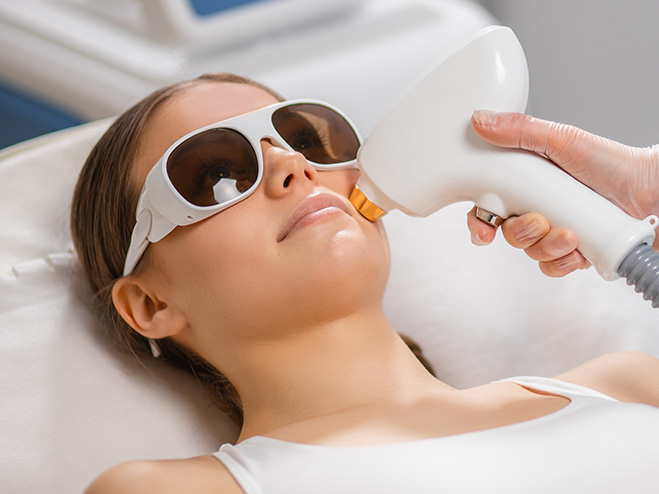Testosterone Replacement Therapy (TRT) has become a popular treatment option for individuals experiencing symptoms related to low testosterone levels. TRT clinics specialize in diagnosing and managing these symptoms to improve quality of life. If you’re considering TRT or just curious about what symptoms it can address, let’s explore some of the most common issues treated at these clinics.
What is Testosterone Replacement Therapy (TRT)?
Before diving into the symptoms, it’s essential to understand what TRT entails. Testosterone Replacement Therapy is a medical treatment designed to increase testosterone levels in individuals whose levels are lower than normal. This therapy can help alleviate symptoms associated with testosterone deficiency, leading to improvements in physical health, mood, and overall well-being.
Common Symptoms Treated at TRT Clinics
1. Fatigue and Low Energy Levels
Are you feeling unusually tired, even after a full night’s sleep? Fatigue is a common symptom of low testosterone levels. Many individuals with testosterone deficiency experience a significant drop in energy levels, making daily activities feel more challenging.
TRT can help restore energy levels by normalizing testosterone levels in the body. Patients often report feeling more energetic and less fatigued once their testosterone levels are adjusted to a healthy range.
2. Decreased Libido and Sexual Dysfunction
Is a lack of interest in sex affecting your relationships? Reduced libido and sexual dysfunction are frequent concerns for those with low testosterone. This includes difficulties with arousal, erectile dysfunction, or decreased sexual desire.
TRT can address these issues by increasing testosterone levels, which plays a crucial role in sexual drive and function. Many individuals find that their libido and sexual performance improve significantly after starting TRT.
3. Mood Swings and Depression
Are you struggling with mood swings or feelings of depression? Low testosterone levels have been linked to changes in mood, including irritability, depression, and anxiety. These mood disturbances can significantly impact daily life and relationships.
TRT can help stabilize mood and alleviate symptoms of depression by restoring testosterone levels to a more balanced state. Patients often experience a more stable mood and improved emotional well-being as a result of treatment.
4. Decreased Muscle Mass and Strength
Do you notice a decrease in muscle mass or strength despite regular exercise? Testosterone is essential for maintaining muscle mass and strength. Low levels of testosterone can lead to muscle loss and decreased physical strength.
TRT can help reverse this process by increasing testosterone levels, which supports muscle growth and maintenance. Many individuals report improved muscle mass and strength as they undergo therapy.
5. Increased Body Fat
Are you struggling with unwanted weight gain or increased body fat? Low testosterone levels can contribute to an increase in body fat, particularly around the abdomen. This is often due to the hormonal imbalance affecting metabolism and fat distribution.
TRT can help reduce body fat by normalizing testosterone levels, which can improve metabolic function and support fat loss. Patients often notice a reduction in body fat and an improvement in body composition after starting treatment.
6. Poor Cognitive Function
Have you noticed difficulties with memory or concentration? Testosterone plays a role in cognitive function, and low levels can contribute to issues such as poor memory, reduced concentration, and mental fog.
TRT can enhance cognitive function by restoring testosterone levels. Many individuals find that their mental clarity and focus improve as their hormone levels become more balanced.
7. Sleep Disturbances
Are you experiencing trouble sleeping or insomnia? Low testosterone levels can affect sleep patterns, leading to issues like insomnia or restless sleep. This can further exacerbate feelings of fatigue and irritability.
TRT can help improve sleep quality by stabilizing testosterone levels, leading to more restful and uninterrupted sleep. Patients often find that their overall sleep quality improves as a result of therapy.
How TRT Clinics Diagnose and Treat Symptoms
Comprehensive Evaluation
TRT clinics begin with a thorough evaluation to diagnose testosterone deficiency. This typically includes a detailed medical history, a physical examination, and blood tests to measure testosterone levels. The goal is to identify the underlying cause of the symptoms and determine if TRT is an appropriate treatment option.
Personalized Treatment Plans
Based on the evaluation, TRT clinics develop personalized treatment plans tailored to the individual’s needs. This can include various forms of testosterone administration, such as injections, patches, gels, or pellets. The choice of method depends on factors like patient preference, convenience, and medical considerations.
Ongoing Monitoring and Adjustments
Once treatment begins, regular follow-up appointments are essential for monitoring progress and adjusting the treatment plan as needed. This includes monitoring testosterone levels, assessing symptom improvement, and managing any potential side effects. The goal is to ensure that the therapy is effective and that the patient’s overall health is maintained.
Conclusion: Considering TRT for Symptom Relief
Testosterone Replacement Therapy can offer significant benefits for individuals experiencing symptoms of low testosterone. By addressing issues such as fatigue, decreased libido, mood swings, and muscle loss, TRT can improve overall quality of life.
Urology Specialists of Milford stand out as a top TRT clinic in Milford, MA, offering expert care tailored to your unique needs. Their specialized services ensure comprehensive treatment for common symptoms associated with low testosterone.
Let’s discuss: Have you experienced any of these symptoms, or are you considering TRT as a treatment option? What questions or concerns do you have about the process? Feel free to share your thoughts or seek advice from a healthcare professional to explore whether TRT might be right for you. Addressing low testosterone with the right treatment can make a substantial difference in your well-being and daily life.









